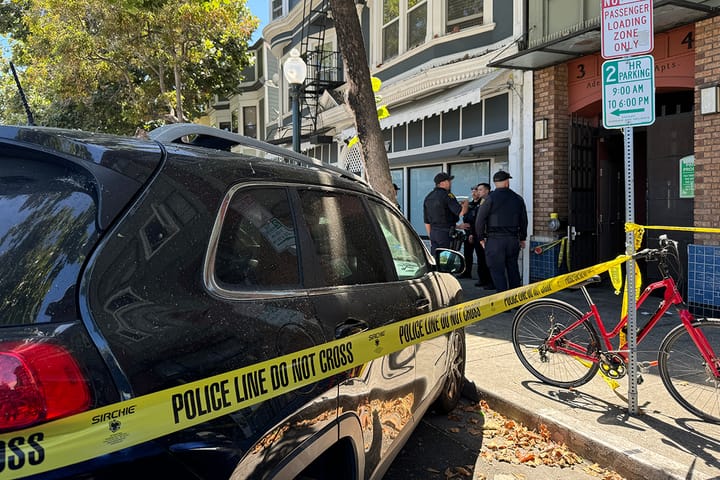Berkeley votes to tackle its most hazardous homeless camps
The vote came after hours of impassioned public comment with most speakers urging the city not to criminalize the homeless.
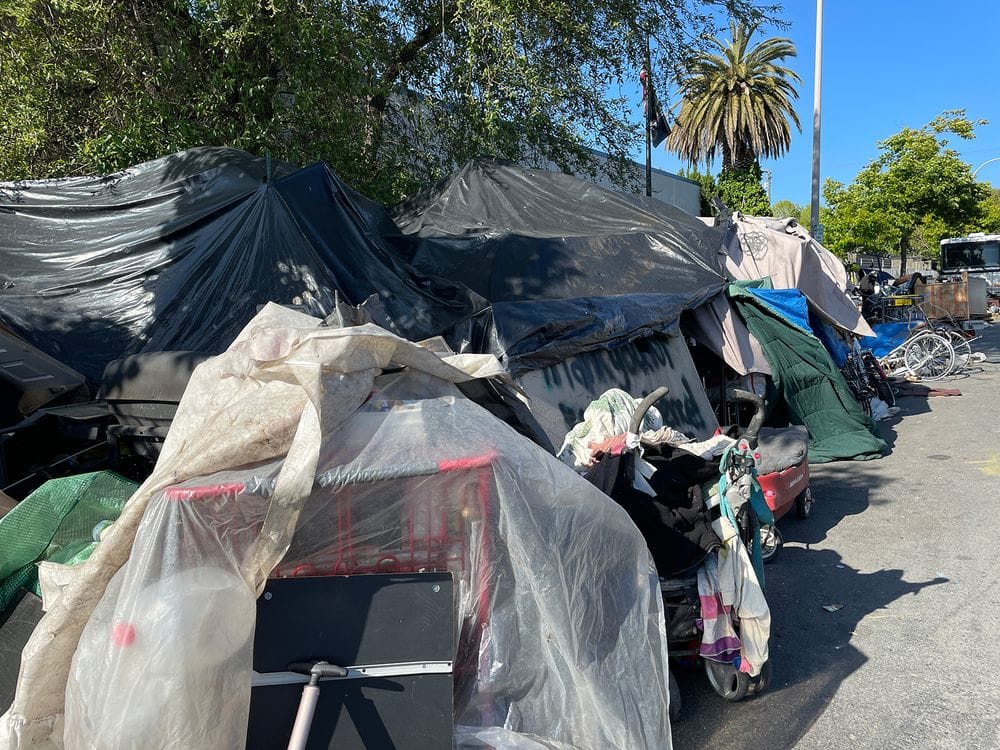
Berkeley officials voted Tuesday night to let workers clean up the city's most intractable homeless camps while still stressing a "care first, jails last" model.
The Berkeley City Council voted 8-1 to allow staff to clear hazardous homeless camps and keep them from returning — even if the city is unable to offer shelter.
"I want to reiterate again that we will offer shelter when feasible," said northwest Berkeley Councilwoman Rashi Kesarwani, who put the item forward. "That's not just empty rhetoric."
The vote came after hours of impassioned public comment with most speakers urging the city not to criminalize the homeless or remove encampments through "sweeps."
About 70 people made public comments Tuesday night, with more than 50 telling officials to reject the item.
"If this happens, this is the beginning of the end. This is the death of Berkeley," said activist Andrea Henson, of Where Do We Go? Berkeley, after leading fellow advocates in a verse of "Amazing Grace."
Andrea Henson of @WhereDoWeGoBerk leads audience members in “Amazing Grace,” adding, “If this happens, this is the beginning of the end. This is the death of Berkeley.” #berkmtg pic.twitter.com/bx1Xuyudbl
— The Berkeley Scanner (@BerkeleyScanner) September 11, 2024
"Berkeley needs to resist this neoliberal attempt to basically impoverish people more and more," said local activist James McFadden. "They're going to retaliate, and it would take one person with a lighter and a bucket of gasoline to light up those hills."
A new group called the Berkeley Homeless Union said it is prepared to take the matter to federal court and advised Councilwoman Kesarwani that she would be a named defendant.
In a cease and desist letter, the group proposed a series of "agreements" between the city and its unhoused people that would allow both sides to collaborate on humane solutions.
Yesica Prado and Gordon Gillmore, who run a new community group called the Berkeley Homeless Union, said they are prepared to take the matter to federal court and that resolution author Councilwoman Rashi Kesarwani would be a named defendant. They shared this letter. #berkmtg pic.twitter.com/NMhMeXN8YW
— The Berkeley Scanner (@BerkeleyScanner) September 11, 2024
Brigitte Nicoletti with the East Bay Community Law Center also asked officials to review a letter from 14 advocacy groups opposing the encampment item.
"This will do absolutely nothing to address the housing crisis that Berkeley residents are facing," she said. "It will only lead to more pain, suffering and death in the unhoused community, and the burden of this policy will fall heaviest on unhoused people of color and people with disabilities."
Longtime Berkeley attorney and homeless rights advocate Osha Neumann also addressed officials a few minutes ago, urging them not to pursue this resolution. #berkmtg pic.twitter.com/3NN2ckRf6i
— The Berkeley Scanner (@BerkeleyScanner) September 11, 2024
In stark contrast to much of the public comment Tuesday night, city officials said they had received hundreds of emails from constituents urging them to take action to clean up the most blighted areas and restore public access to everyone.
"I'm getting asked, why are we asking for more and more money to fund programs, and people are seeing their conditions deteriorate?" West Berkeley Councilman Terry Taplin said. "Why are people saying that they feel like they can't walk home in their own neighborhoods?"
Most of the community concerns have focused on homeless encampments in northwest Berkeley around Harrison Street — where a coalition of local businesses filed a lawsuit against the city Tuesday — and on Second Street.
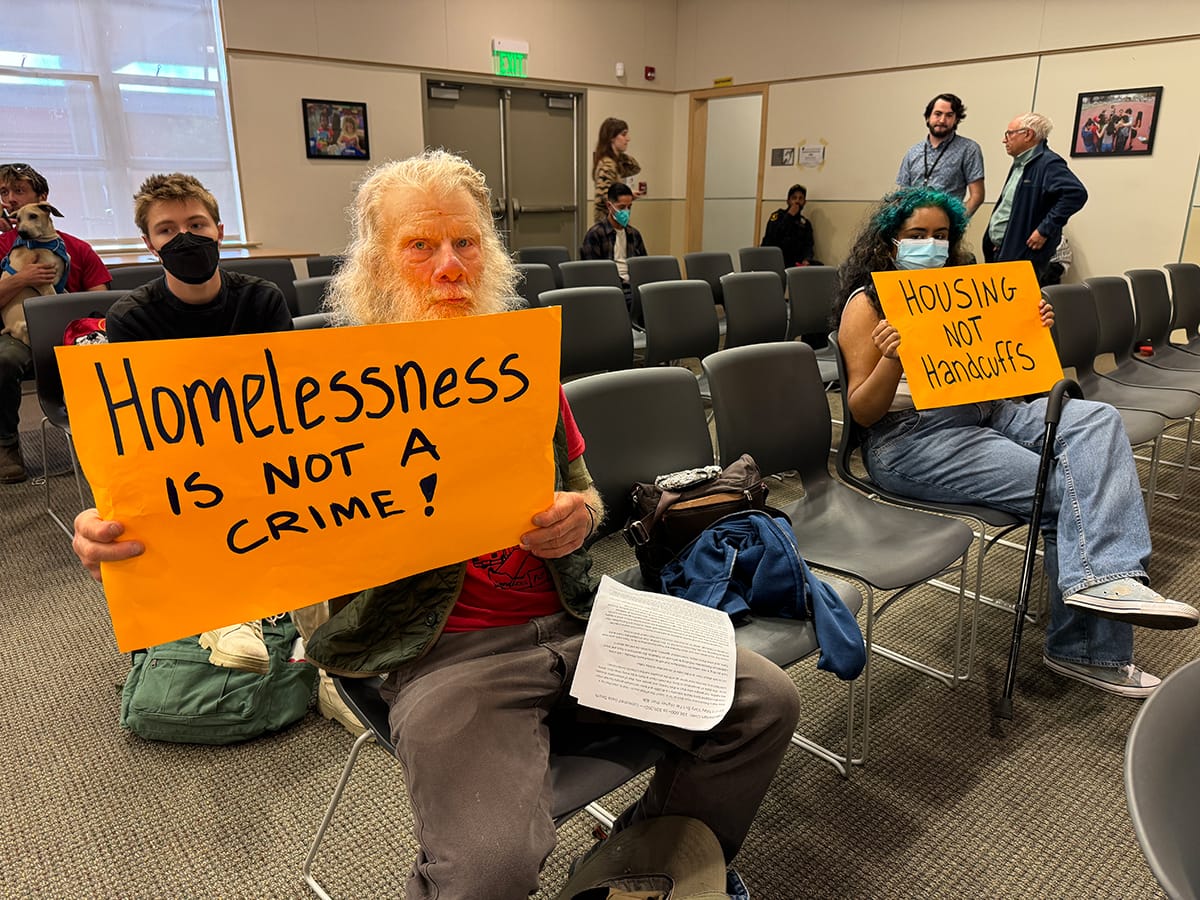
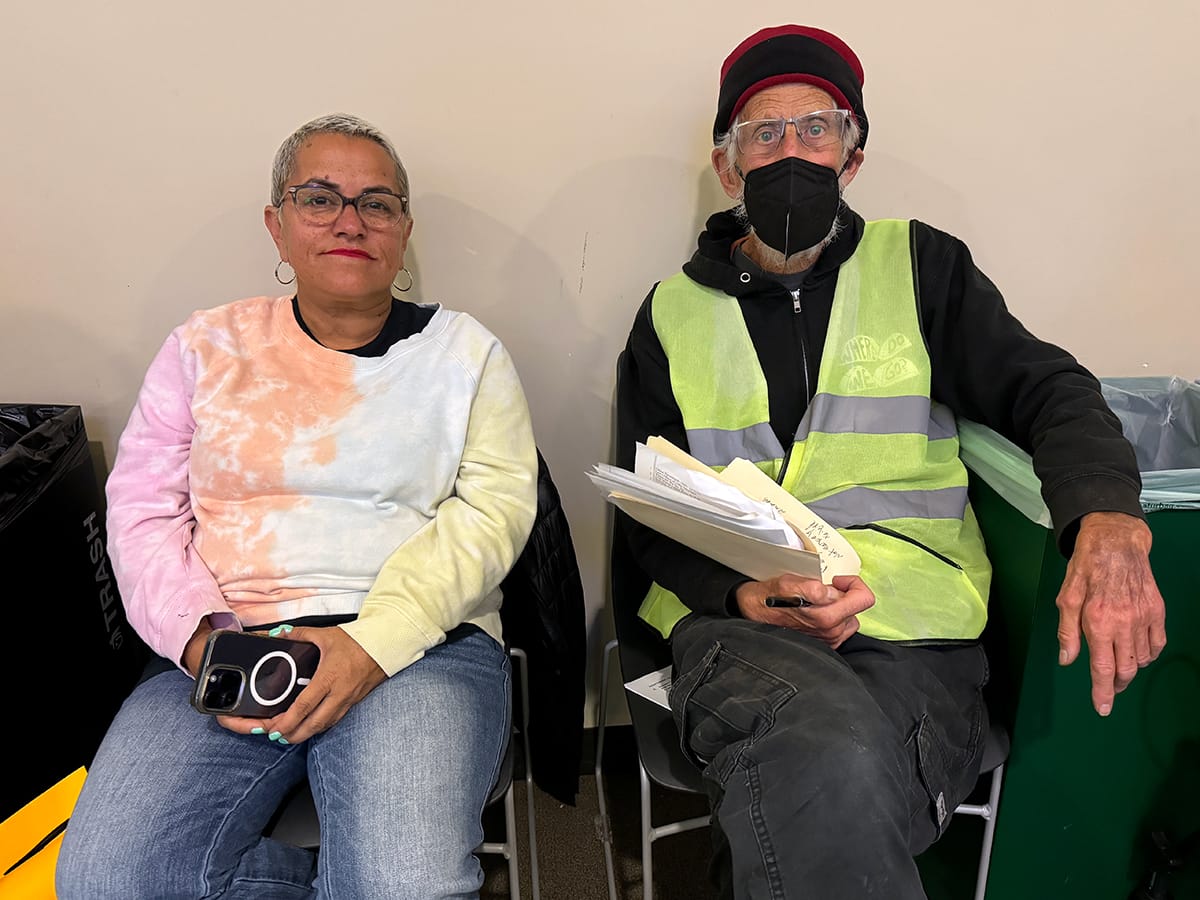
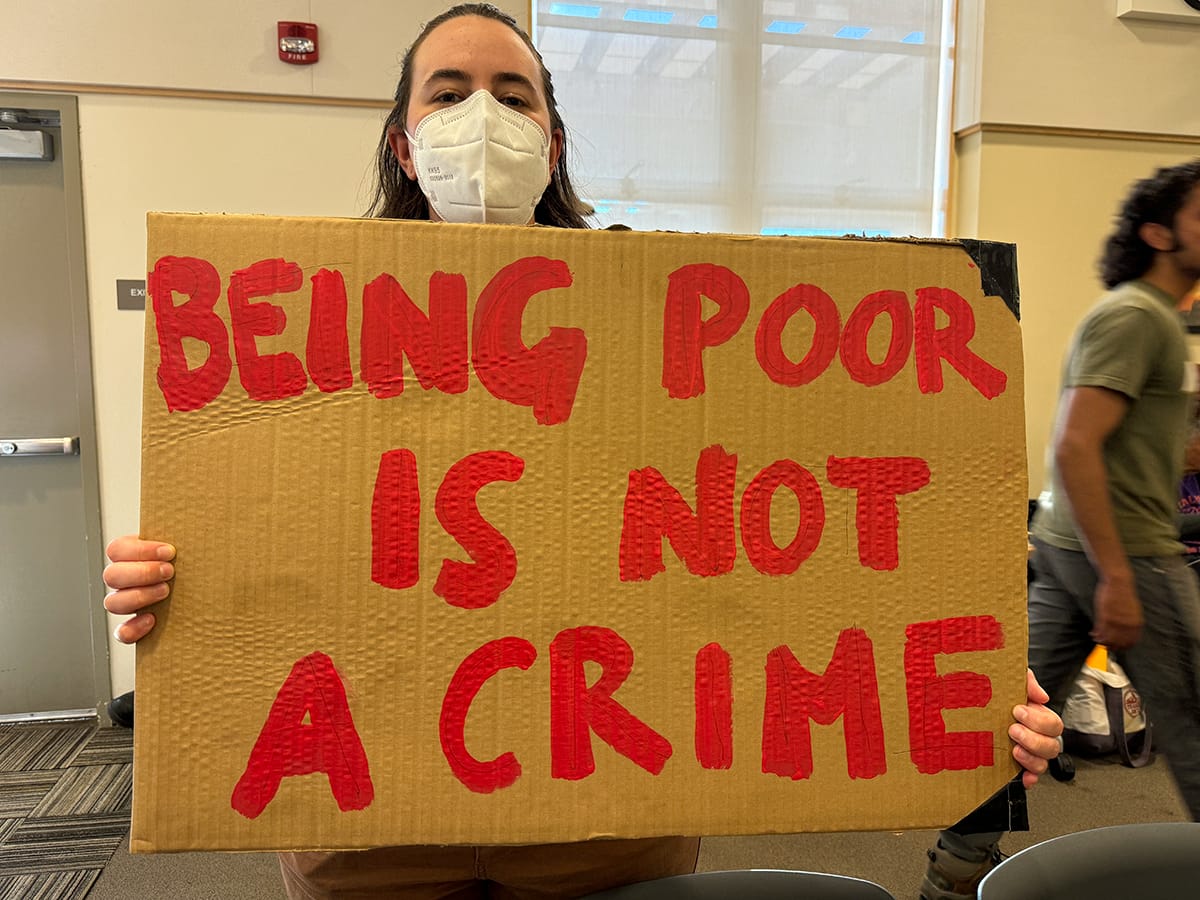
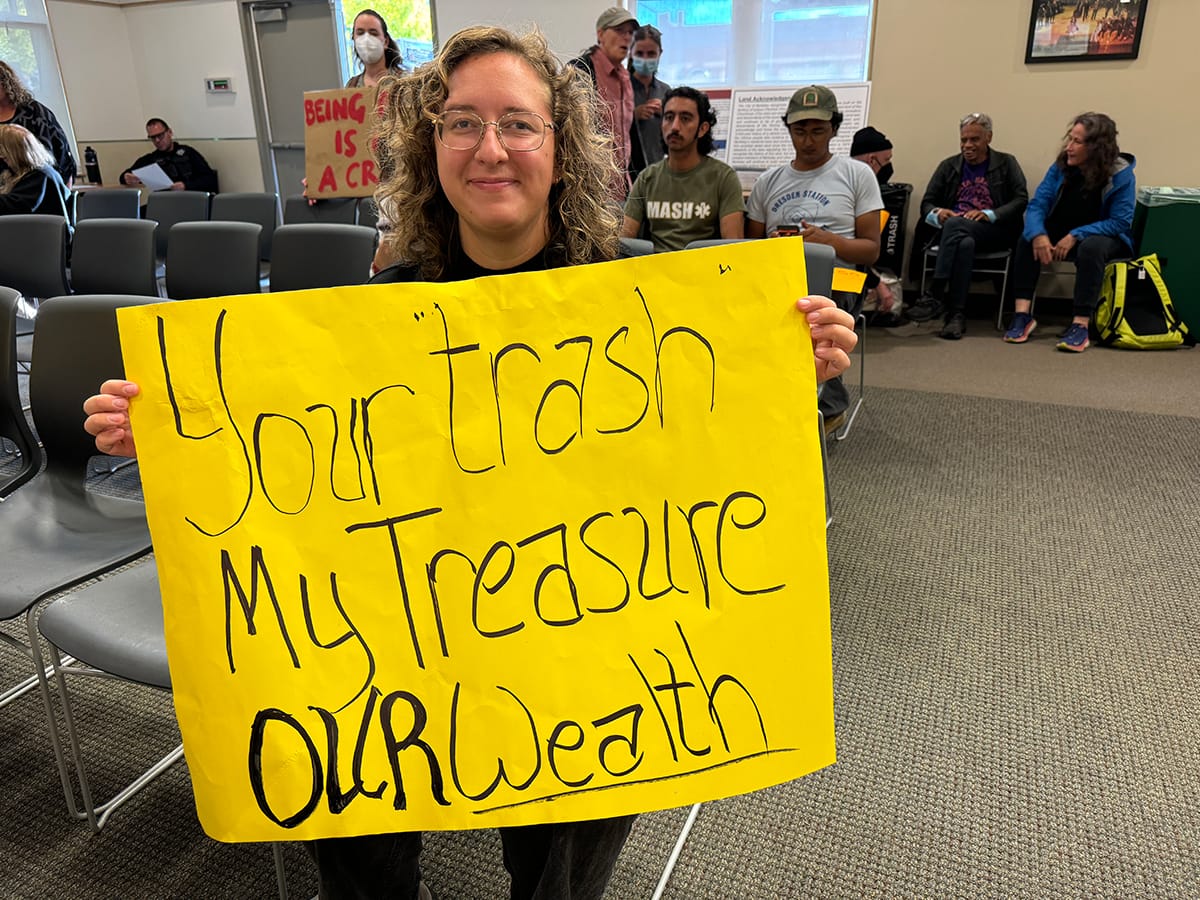
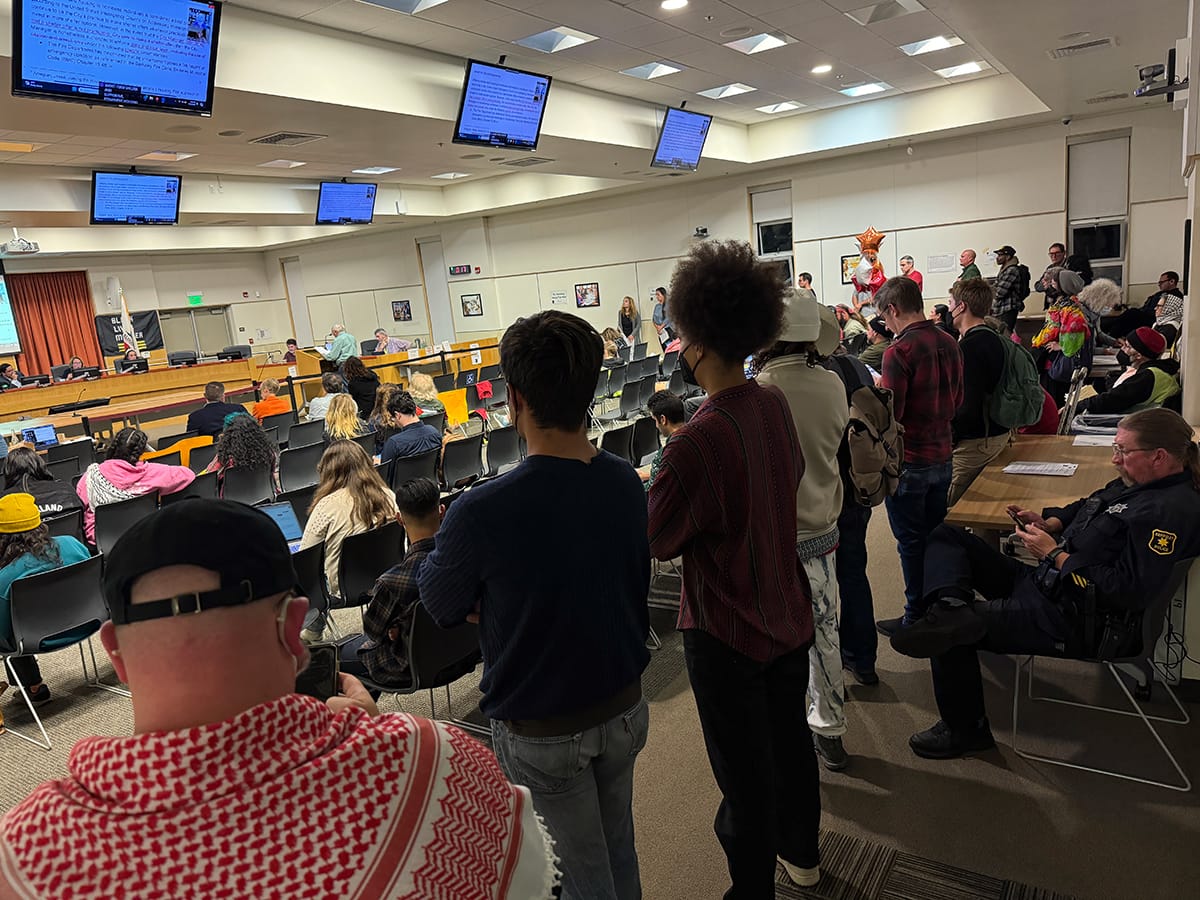
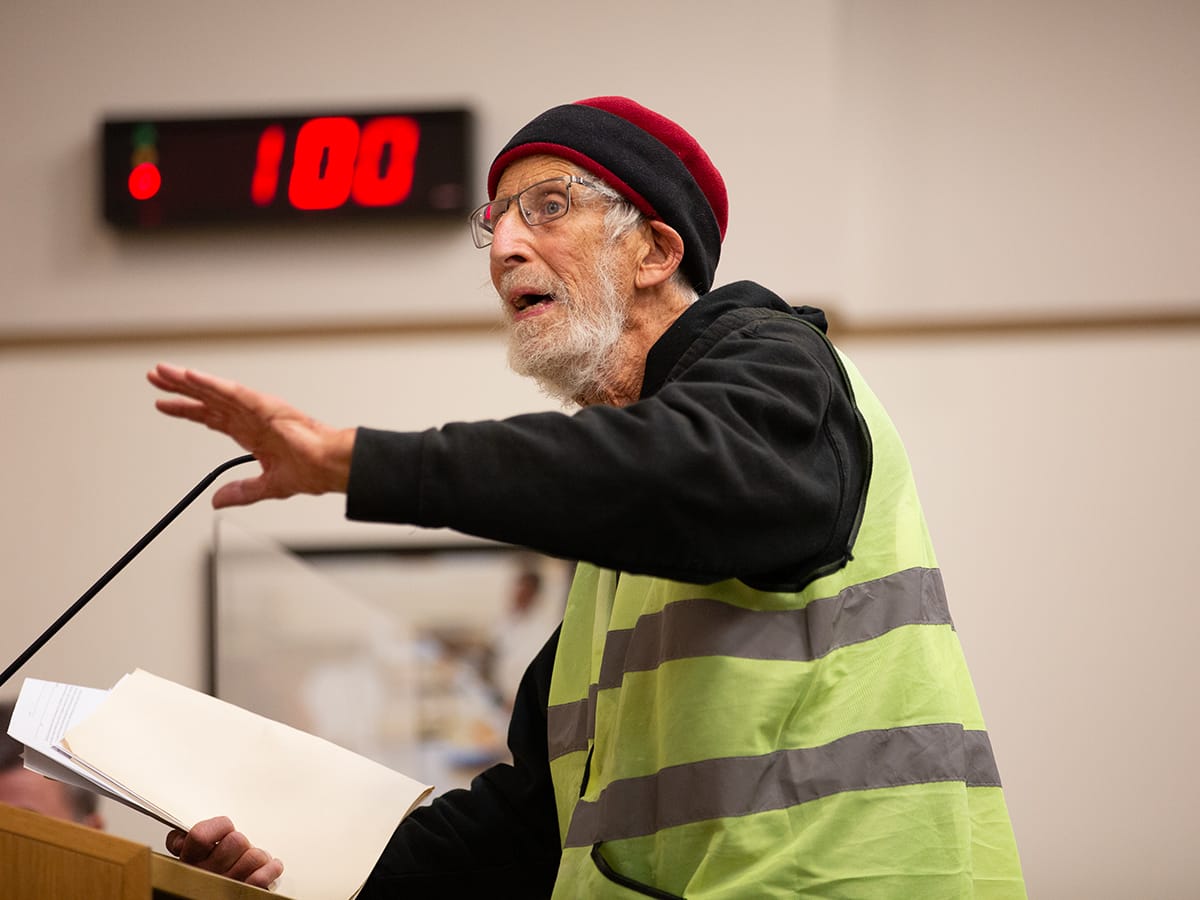
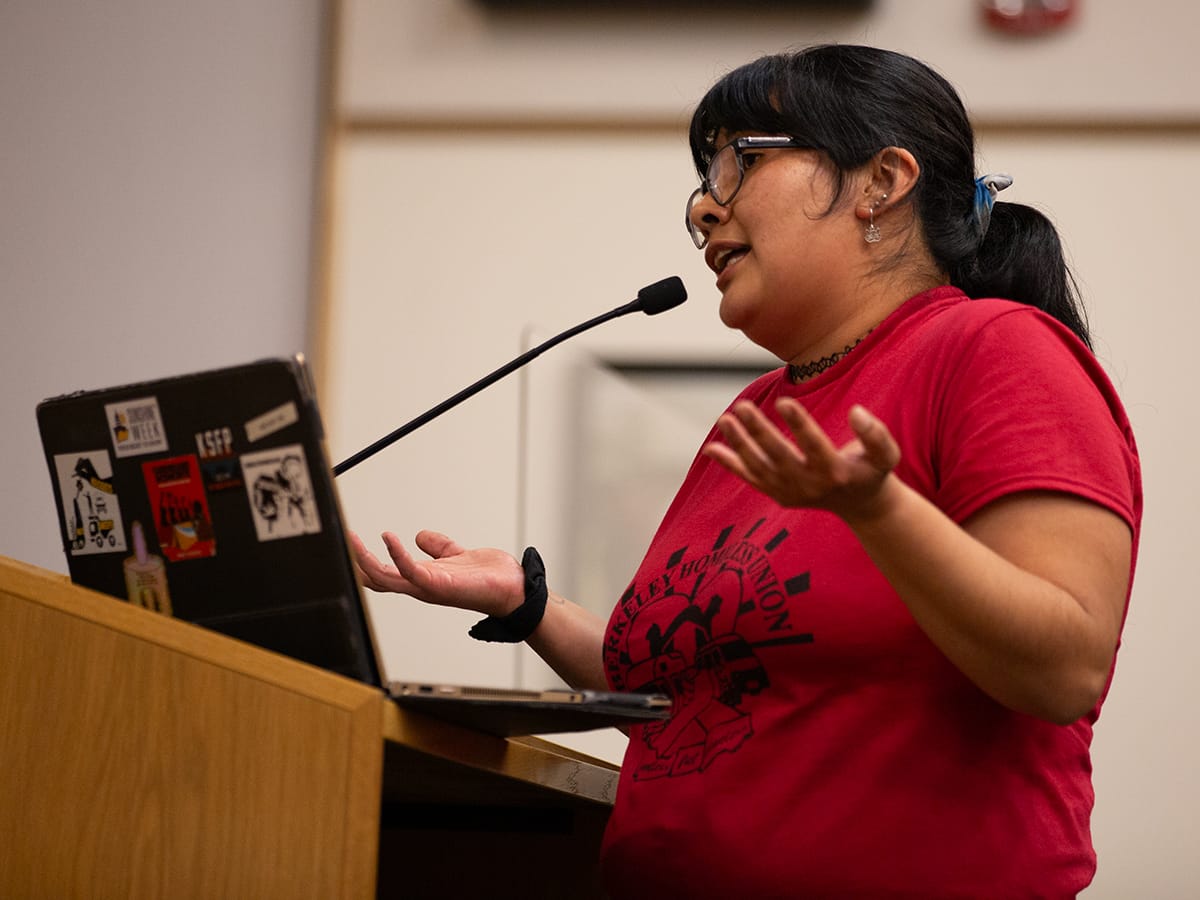
Dozens of people addressed the Berkeley City Council on Tuesday night. The line of speakers stretched around the room. Top row center: Andrea Henson and Osha Neumann. Final photo: Yesica Prado of the Berkeley Homeless Union. Emilie Raguso/TBS
Many of the 20 or so people who spoke in favor of the encampment item also called for more housing and services to keep people from becoming homeless, and more help for those already on the streets.
But they said it didn't end there.
"What we do not need … is abandoning public space to anarchy and to chaos and to unsafe conditions," one man said. "There is nothing that requires us to give up the public fabric of this city in order to treat our fellow residents with dignity and respect."
Berkeley resident Caroline Winnett described having had to put out fires outside her small commercial building in northwest Berkeley and being concerned about used hypodermic needles discarded in the neighborhood.
"The council and the city has done so much to try to solve this problem and it has not worked yet," she said. "The fact of the matter is that something different needs to be done."
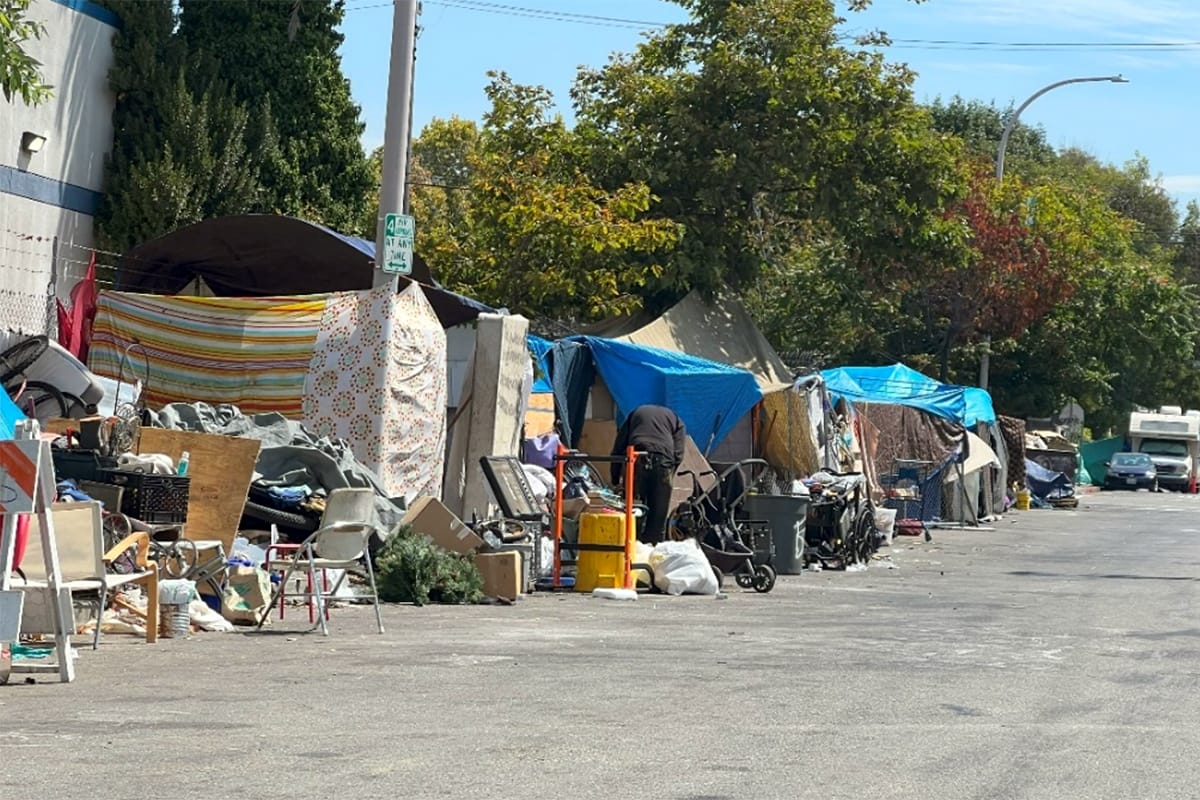
Councilman Taplin, who attended the meeting remotely due to travel, said he was certain the city would continue to be thoughtful about when it would consider enforcement.
A "law enforcement response is not the answer," he said. "But that's not what we're talking about."
"I don't see how we're going to be sending cops to deal with encampments on an arbitrary, reactionary basis," he continued. "The amount of things we have to clear in order to do a basic response is so high that I don't think that's likely to occur."
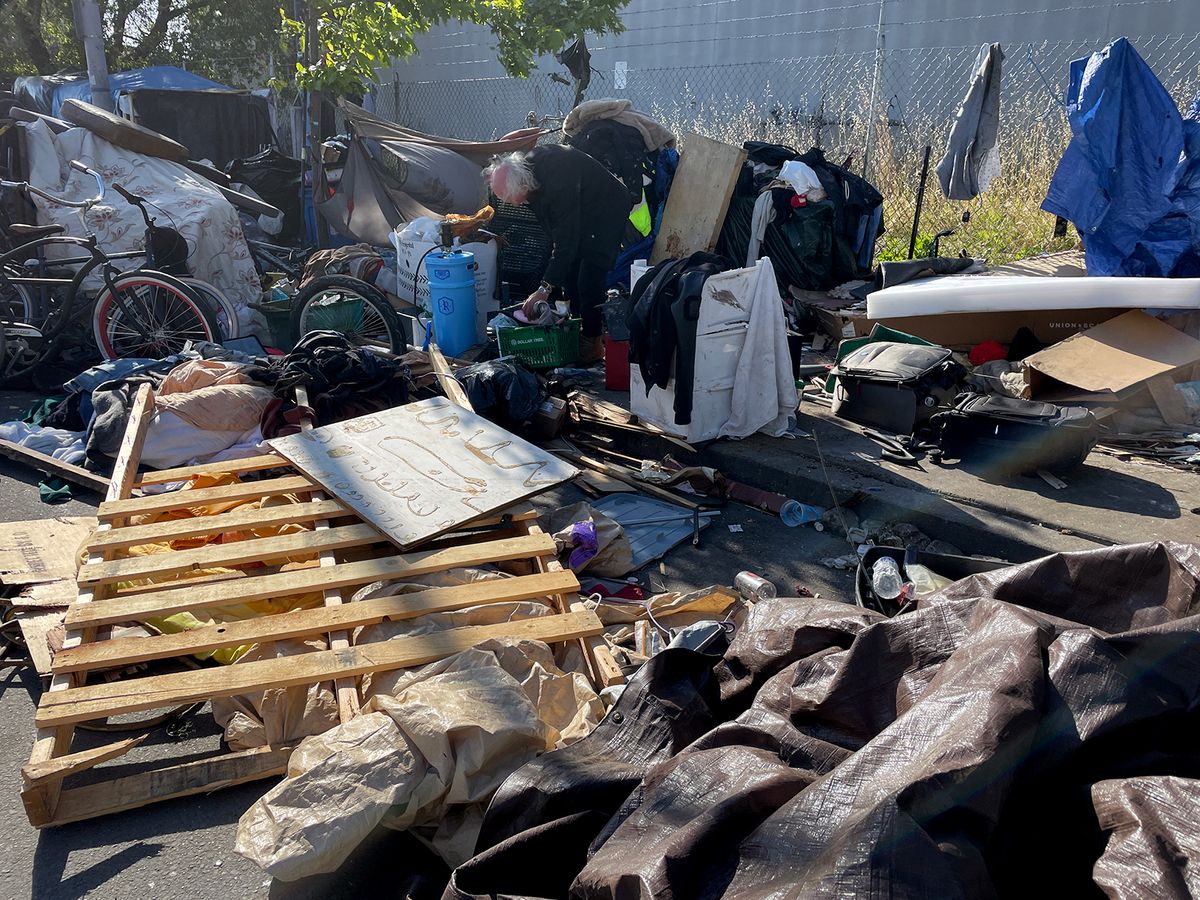
Mayor Jesse Arreguín said he would be asking mayors from around the region to work together to tackle challenges related to homelessness — particularly as some local jurisdictions have kicked off "a race to the bottom" following a recent Supreme Court decision that gave cities more leeway in clearing camps.
Arreguín said San Francisco had been clearing camps without offering any shelter and that police in Richmond had been urging campers to "go to Berkeley" instead.
Arreguín called on Alameda County as well as Gov. Gavin Newsom to step up their support, particularly for places like Berkeley that have worked hard to offer robust housing and services to those in need.
"We are doing more in Berkeley than any other city in Alameda County," Arreguín said, spending more per capita on housing and services. "We need to be thoughtful about this, I agree. But we need to work together."
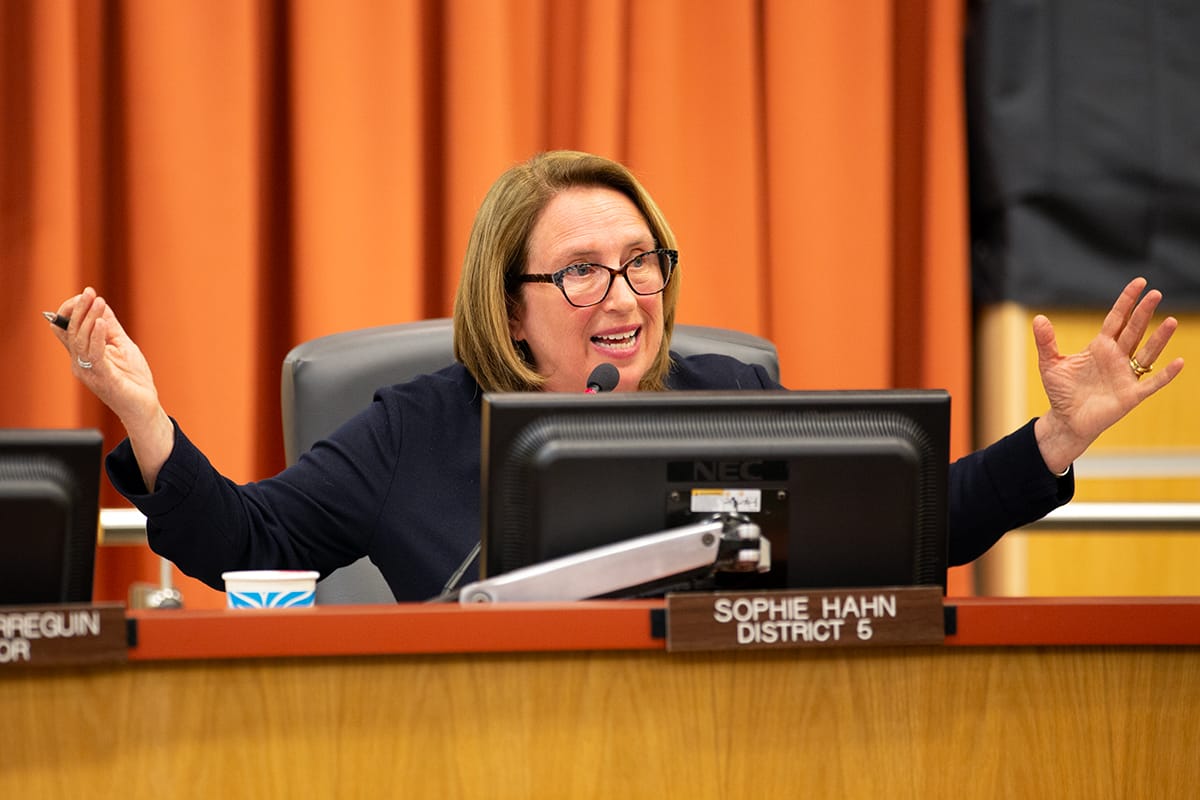
North Berkeley Councilwoman Sophie Hahn — who is now running for mayor — spoke at length about whether the encampment item would actually work and argued that it would "restrict our authority, not expand it."
Hahn said previously that the city already had the authority to address problematic encampments and enforce the law.
Before the Berkeley City Council voted Tuesday night, Kesarwani asked Peter Radu, who oversees much of the city's encampment work, whether he agreed.
Choosing his words carefully, Radu said Berkeley's current policies had not been effective to date at the camps on Harrison Street and Second Street.
Radu said that was the case despite having launched more than 50 "encampment interventions" in those areas over the past three years.
"Our policies are effective elsewhere," he said. "They just have not been effective at clearing and 'maintaining clear' the conditions at these encampments."
Hahn ultimately put forward a substitute proposal, which would have authorized staff to enforce existing city policies at any "severely and persistently impacted location"; and asked staff to review the Kesarwani item and related comments and come back later "with a much more carefully nuanced written item."
South Berkeley Councilmen Ben Bartlett — who said police should focus on violent crime — and downtown Berkeley's Igor Tregub — who said input from his constituents had been evenly split — both voted in favor of the Hahn item.
But it wasn't enough for approval.
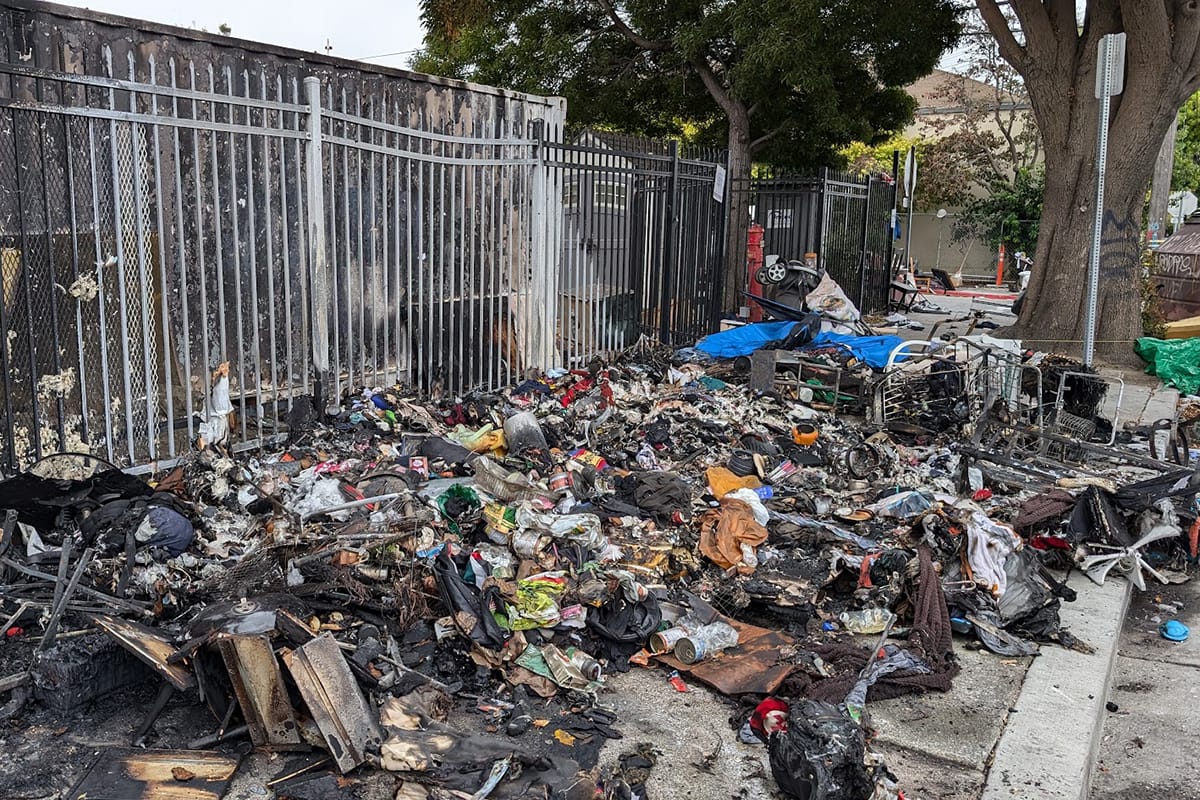
When the Hahn motion failed, the trio joined the majority in supporting a slightly tweaked version of the Kesarwani item, which was co-sponsored by Elmwood/Claremont Councilman Mark Humbert and Berkeley Hills Councilwoman Susan Wengraf.
The final version of the item removed a reference to arrests and citations but emphasized the city's ability to enforce state and local laws "in the event that the City Manager determines that a shelter offer is not practicable."
On Tuesday night, Humbert spoke strongly in support Kesarwani's work to support new housing for homeless individuals and also host it in her district.
Humbert said her proposal did "an excellent job of keeping our 'housing first' approaches at the forefront and resisting the less humane approaches that the Grants Pass decision has the potential to enable."
He continued: "To attempt to recast it as some sort of right-wing anti-homeless effort is wrong-headed, and I would say: Read that as disinformation, and out of step with Berkeley voters."
Southside Councilwoman Cecilia Lunaparra was the lone no vote on both items.
She said she had been "deeply disturbed" by the original proposal for multiple reasons and believed it would only serve to displace, destabilize and criminalize community members who are already struggling.
"This approach either reflects a profound misunderstanding of the lived experiences of unhoused residents or, at worst, a willful disregard for them," Lunaparra said.
She also noted that the city does not have enough beds for all of its unhoused residents and said there was nowhere in Berkeley where encampments are allowed.
Lunaparra also pointed to data showing that the unsheltered population is disproportionately young and LGBTQ, Black or indigenous. Almost 60% of women who experience homelessness are fleeing domestic violence, she added.
"I have received critique for being young and idealistic," she said. "And to that I say, our community’s capacity for envisioning worlds without punitive approaches to poverty is not naive. It is not impossible. It is the future."
The Scanner posted highlights on X during Tuesday night's meeting. View PDFs of the City Council discussion on the encampment item as well as the public comment that came before it.
Other Berkeley City Council highlights
Berkeley officials say the pledge of allegiance, which they are required to do once a year. Some audience members make it clear they aren’t impressed. #berkmtg pic.twitter.com/n6vy3plP4b
— The Berkeley Scanner (@BerkeleyScanner) September 11, 2024
- Those interested in fire safety in the Berkeley Hills should check out consent calendar Item 31 (A and B) about establishing a secondary evacuation route on Panoramic Hill. The plan remains to be determined but the work can now begin.
- Another important item for those concerned about fire safety in the Berkeley Hills is Item 34 from Councilwoman Susan Wengraf: wildfire home hardening work as a transfer tax rebate. "The insurance industry is watching," she said.
- An AC Transit rep announced that public comment ends Wednesday, Sept. 11, on its draft realignment plan, "a comprehensive assessment of every AC Transit bus line in response to the substantial shifts in ridership and commute patterns since the pandemic." There are two public hearings today, at 2 p.m. and 6 p.m.
See the full agenda materials online.



